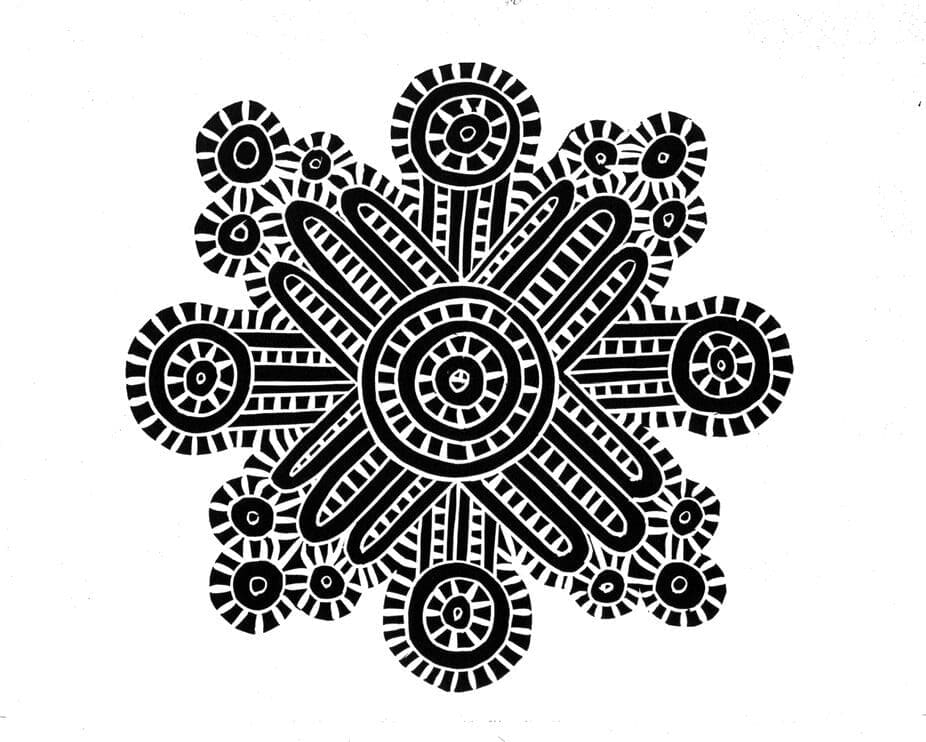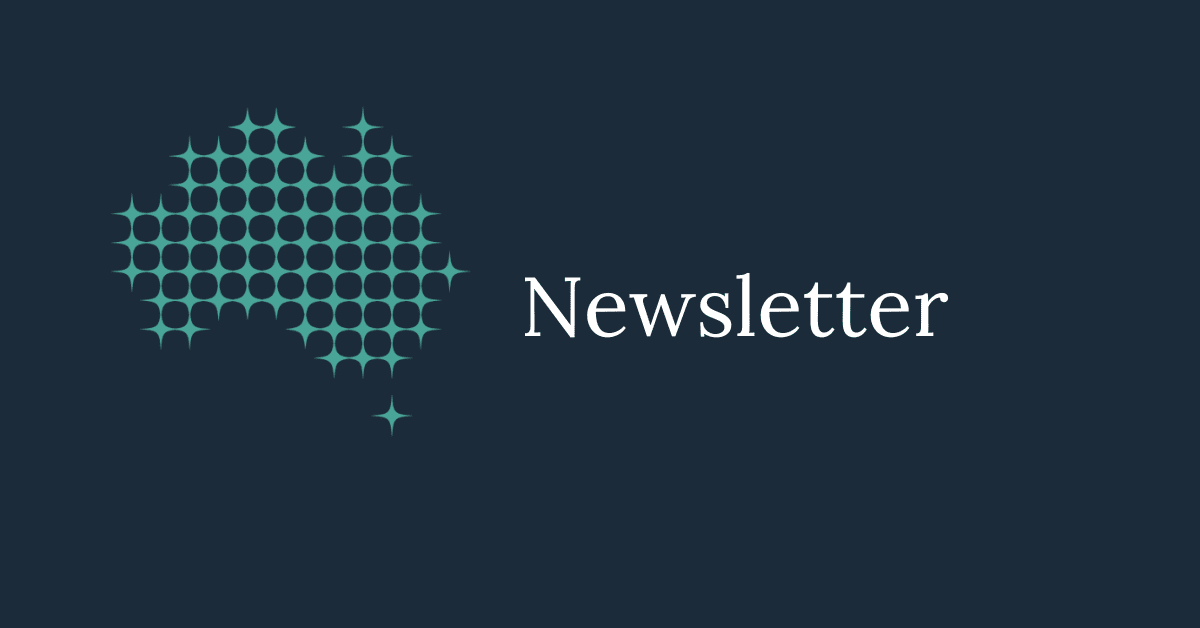Welcome to the November 2023 newsletter. In this edition:
A message from our President
It is a great pleasure to be writing to you as Academy
President, following my election at the Academy’s Annual General Meeting on 12
October. Being elected is a great honour, not least because I follow in the
footsteps of those amazing leaders in our sector, Profs Ian Frazer, Ingrid
Scheffer and Steve Wesselingh. I was one of the Academy’s 15 original Members
of Council in 2014. Under the leadership of Ian Frazer, and with the help of
various friends and supporters in the Department of Health, the NHMRC, Group of
Eight and others, we established the Academy from scratch. It was an exciting,
intense – and occasionally terrifying – experience early on. But how worthwhile
it has been.
It’s been wonderful to see the Academy grow and become more
established and secure. But why are we here? In our strategic
plan we say that our purpose is to advance research and innovation in
Australia to improve everyone’s health. And our vision is better health for
Australia and the world, driven by the best health and medical science. How are
we going?
In the nine years since we started as an Academy, there has
been enormous work undertaken in several areas. We have focused on our goals of
nurturing future research leaders through the Mentorship Program and the
various Life as a
Clinician-Scientist events. Another goal, that of influencing
policy, has been enabled through the inspired work of many Fellows who have
contributed to various aspects of the pandemic response, and policy reports and
roundtables including “A vision for the
future: research and innovation as core functions in transforming the health
system”, “Innovation
in mental health”, and “Advancing
prevention in Australia”. And our
goal of strengthening
and celebrating research, is being realised through the growth of our
Fellowship and the recognition of outstanding achievements.
Over the next three years of my Presidency, I want to build
on these and other great foundations that have been established. There are also
some other areas of the Academy’s work that I see as especially important to
strengthen. One of these is around another of the Academy’s goals: to build
the health-academia-industry interface. We have several Fellows, including
people such as Professor Bronwyn Kingwell on our Executive, who already live
and breathe this interface. It’s important we further build on and support such
work in the next few years so that we have many more examples of integration
and collaboration across academia, health and industry. How can we as an
Academy further support this? I am keen
to better understand and support this important area.
However, my most important priority as President will be to
continue to advance the Academy’s focus on supporting Aboriginal and Torres
Strait Islander health and wellbeing. This sits across all areas of the
Academy’s work. I want to see how we as an Academy can further engage with,
learn from, support and work alongside our First Nations Fellows and other
First Nations health and medical research leaders.
Earlier this year, the Academy published
a statement in support of the Voice to Parliament. I know that many of our
Academy Fellows, including myself, were deeply saddened by the result of the
referendum. I especially acknowledge the toll that the lead up to the
referendum and its result may have had, and be having, on our First Nations
Fellows, members, friends and colleagues.
Our recent annual meeting focused on driving health equity
and featured a strong theme of health inequities for Indigenous communities. A
panel discussion of First Nations contributors featured a range of views on the
Voice, but all agreed that no matter the referendum outcome, there was more
work to be done to improve health inequities among First Nations communities,
as well as many opportunities to learn from – and celebrate – the strength,
knowledge and achievements of Aboriginal and Torres Strait Islander
peoples. With this sentiment in mind, I
am pleased to share that the Academy launched a new honour at our recent gala
dinner: the
Outstanding First Nations Researcher Medal. The medal has been created with
generous support from the Gandevia Foundation, and comes with a travel grant
for the recipient, kindly supported by Bellberry. Nominations are now open – as
they are for the Academy’s Outstanding Female Researcher Medal and Jian Zhou
Medal. Read more about them below, or visit the awards page on our website.
Finally, I wish to thank all our Fellows, Associate Members,
guest speakers and attendees for their participation in our annual meeting,
held this year in Brisbane at the Translational Research Institute. The
fascinating program featured a diverse range of experts covering a variety of
topics, all with the common focus of improving health equity. You can view a
gallery of images from the event on our Facebook
page, and videos of talks will be shared on our website later this year.
I’d like to extend my sincere thanks to Professor David Whiteman AM, our
Queensland State Chair and head of the meeting steering committee, who did an
excellent job in organising the event. I look forward to next year’s event in
South Australia – when we will also celebrate our tenth Birthday – and hope to
see many of you there. We look forward to sharing details soon.
Best wishes,
Professor Louise Baur AM PresAHMS

The Outstanding First Nations Researcher Medal will be designed by artist Teho Ropeyarn, using his work Unggoonggu (star), pictured above.
AAHMS awards
The Academy’s honorific awards are awarded annually to talented researchers in recognition of their significant contributions to furthering biomedical and health research in Australia. These awards are an important part of our role as an Academy to celebrate excellence in health and medical research and to promote diversity and inclusion within the sectors.
We welcome nominations from all fields associated with furthering biomedical and health research. Nominators and nominees do not need to be AAHMS Fellows, and applications highlighting diverse nominees are strongly encouraged. Nominations are now open for all AAHMS medals.
Learn about the incredible achievements of our 2023 awardees: winners of the Jian Zhou Medal Professor Laura Mackay FAHMS and Professor David Ziegler, and Outstanding Female Researcher Medal winner Professor Rachelle Buchbinder AO FAHMS.
Outstanding First Nations Researcher Medal
The Academy’s Outstanding
First Nations Researcher Medal is awarded annually to an outstanding
mid-career researcher of Aboriginal and/or Torres Strait Islander descent, who
is an emerging research leader working and making an impactful contribution in
the health and medical sciences in Australia.
The medal is designed by artist Teho Ropeyarn, using his
work Unggoonggu (star), pictured above.
Expressions of interest close 1 March, with full nominations
due 20 May.
Outstanding Female Researcher Medal
The Outstanding Female Researcher Medal recognises a researcher who identifies as a woman, who will have made one or more exceptional and impactful contributions in the health and medical sciences from work primarily conducted in or led from Australia.
Nominations close 1 March.
Jian Zhou Medal
The Jian Zhou Medal recognises a rising star of Australian health and medical science – an individual within 15 years of completing their PhD (or equivalent first research higher degree) who is making a significant impact in translational medical science from work primarily conducted in or led from Australia.
Nominations close 30 April.
AAHMS Annual Meeting survey
Did you join us at our Annual Meeting in October? We would welcome your thoughts and feedback on the event. The survey is anonymous and information will be used to improve future events. Find the survey online here.
AAHMS policy news
The Academy’s policy team submitted three consultation
responses in the past month. Our thanks to the Fellows and Associate Members
who kindly contributed to these.
- Draft National Science and Research Priorities
- Unleashing the potential of our workplace
- Understanding our RNA potential
Congratulations
Professor Rachelle Buchbinder was named the AAHMS 2023 Outstanding Female Researcher Medal recipient.
Professor Sandra Eades has been elected as an Honorary Fellow of the Australian Academy of Technological Sciences and Engineering.
Professor Laura Mackay has been named the inaugural AAMRI Rising Star award for 2023 for her groundbreaking work in immunology.
Professor Michelle Haber and Professor Ricky Johnstone have been appointed as co-chairs of the Medical Research Advisory Committee at the Australian Cancer Research Foundation.
Professor Caroline Homer will be leading a review of the Australian midwifery workforce. The review aims to ensure the continued growth and sustainability of the profession.
Fellows in the news
Professor Steve Wesselingh discusses his plans as CEO of NHMRC on NHMRC’s news site.
Professor Sandra Eades co-authored a piece in the National Indigenous Times, stating that another inquiry into Aboriginal child sexual abuse was unnecessary, as there are already evidence-based recommendations that could be implemented immediately.
Professor Brendan Crabb discussed COVID and whether it will be a forever virus on ABC’s Coronacast.
The Australian spoke with Professor Louise Maple-Brown about the rise of Type 2 Diabetes in children and young people.
Professor Ian Frazer spoke the Australian Financial Review about vaccines and manufacturing ahead of a meeting with Industry and Science Minister Ed Husic.
Professor Mark Dawson spoke to 3AW Melbourne about a drug created in Melbourne for the treatment of bone marrow cancer.
ABC News interviewed Professor Richard Scolyer about experimental treatments being used for his incurable brain cancer, following his National Press Club address with Fellow Professor Georgina Long. Professor Scolyer also spoke to ABC Listen about the experimental treatments he is undergoing and featured in a Good Weekend article for Sydney Morning Herald.
Academy Associate Member Professor Lauren Ball co-authored a piece on the role of supplements such as psyllium and probiotics in lowering cholesterol for The Conversation.
Professor Ian Hickie co-authored a piece on afterschool care, calling for more investment so training and programs can be delivered to promote wellbeing of children, educators and their wider communities in The Conversation. He also spoke to ABC Radio Hobart about depression.
Professor Flavia Cicuttini wrote for The Conversation about her recent study which found an existing drug could help many people with painful hand osteoarthritis.
Professor Louise Baur co-authored an article for MJA’s InSight, discussing the findings of a new study about breastfeeding and paternal smoking.

